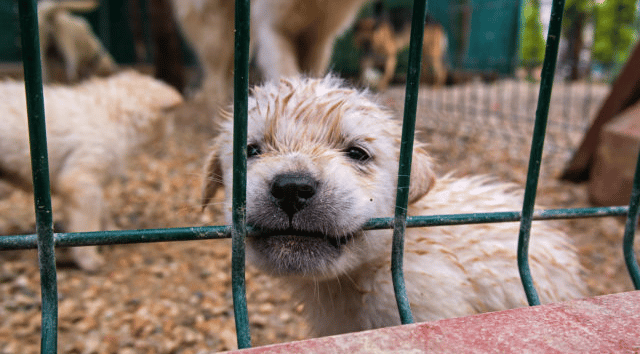If you are considering getting a puppy, it is important to know the facts about puppy mills and why to avoid getting a puppy from one. The term Puppy Mill is used to describe large-scale commercial dog breeding, that focuses on maximizing profit by producing the highest number of puppies at the lowest cost possible. A business like this will not refer to themselves as a puppy mill, but instead call themselves dog breeders. Many of these mills either sell puppies to the public directly, sell to a dog broker, or sell to pet stores. Besides the many unethical breeding practices that occur in puppy mills, one of the biggest reasons to avoid them is the detrimental health problems that occur in these puppies. Also, leading to rescue dogs being euthanized due to lack of homes available as they were filled by Puppy Mills.
Dogs and puppies in puppy mills often suffer from a variety of painful and potentially deadly medical problems. This is due to overcrowding, unsanitary conditions, and lack of proper veterinary care. Let’s look at the most common medical issues that arise.
In addition to most common problems of puppy mill dogs, these animals can also have physical injuries due to their housing, kennel cough, pneumonia, ectoparasites, bacterial skin infections, dental disease, and more.
While efforts are underway to eradicate puppy mills, there is still a long way to go. You can help by making adoption your first choice! There are plenty of healthy puppies for adoption in shelters and rescues, that all undergo complete health exams, routine preventative care, and socialization.
Dog Spotted has provided a rescue resource for New Yorkers, click here and you will find a list of reputable rescues and shelters and a filtering system to find if you can foster to adopt, or a breed-specific rescue to find your paw-fect dog. If you want to learn more about Dog Rescuing and Puppy Mill abuse, click here to read a detailed account from an undercover investigator who shines a bright light on these horrific practices.
If you cannot find the dog you want and do turn to a breeder, know that a responsible breeder will want to screen potential buyers to ensure their puppies are going to good homes. Doing your research can help ensure that you are getting a healthy puppy, and not supporting the puppy mill industry.









Conversation